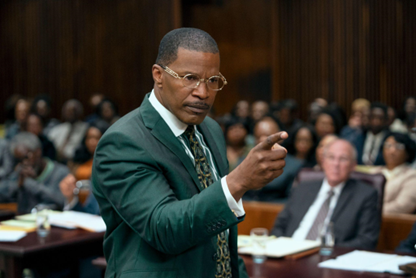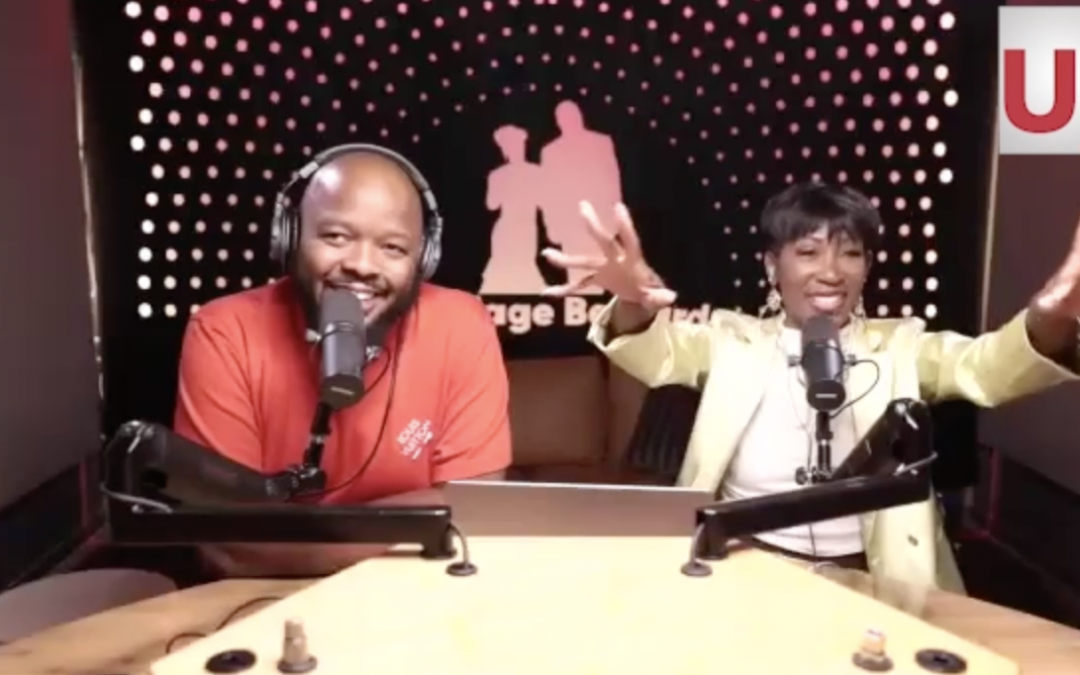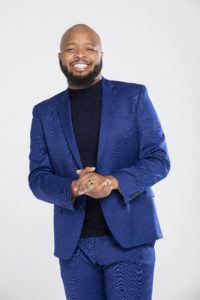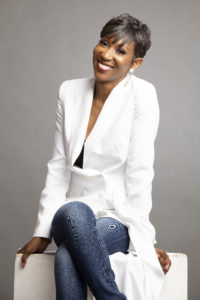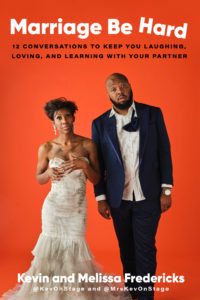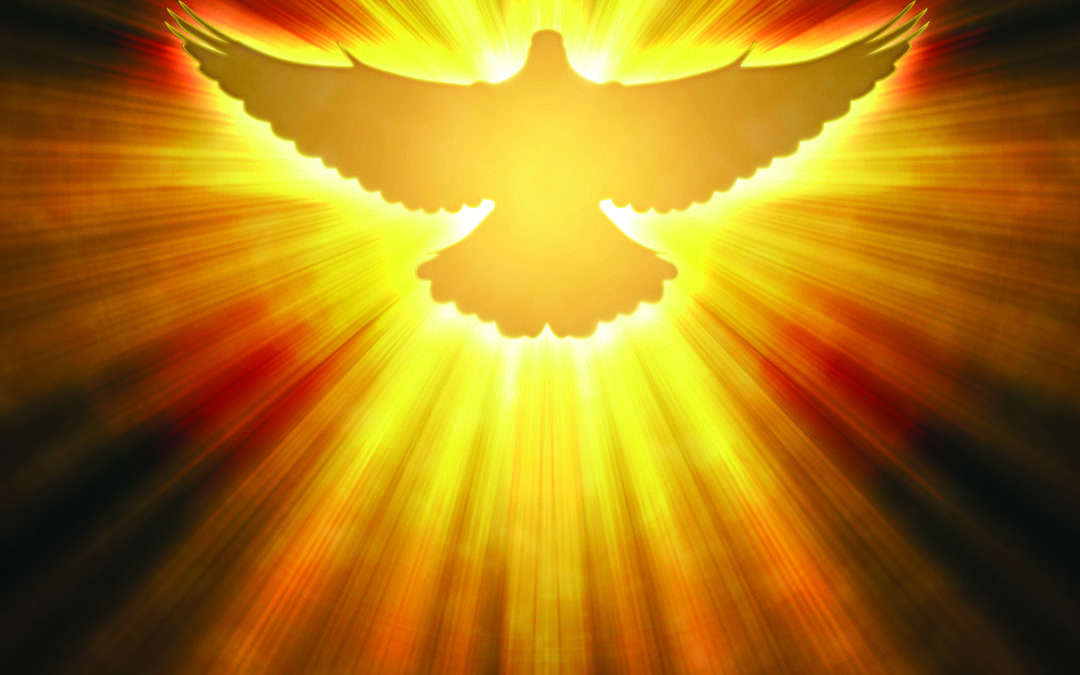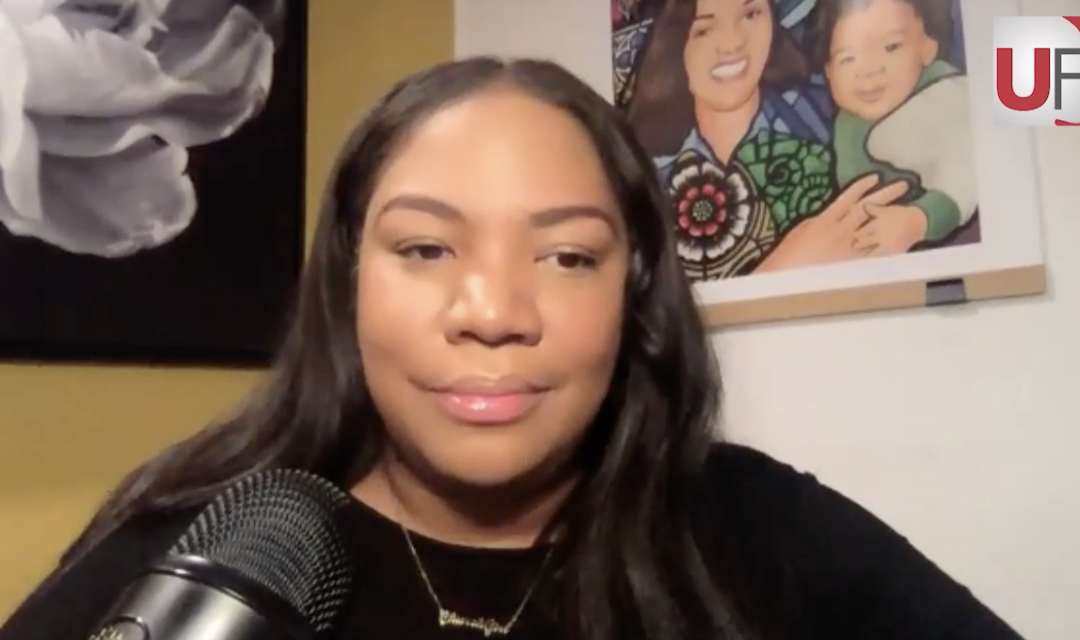
Church Girl: Dr. Sarita Lyons x UrbanFaith
UrbanFaith interviewed minister, psychotherapist, and author Dr. Sarita Lyons about her new book Church Girl which is a comprehensive look at the blessing, challenges, and opportunities for black women to live fully as believers and part of the body of Christ. UrbanFaith editor Allen Reynolds believes it is one of the most important books of the year. The full interview is above. Excerpts below have been edited for clarity.
——-
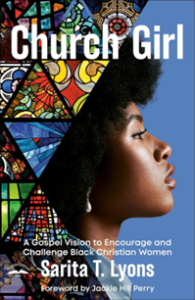 Allen
Allen
What inspired you to write this book? You clearly, you’ve spent a lot of time doing counseling work, and then you spent a lot of time doing ministry work. Why did you decide to write a book to help black women and to help black churches to deal with everything that concerns you?
Dr. Lyons
Yeah, great question. So the thing that I’ve been saying when I get that question is, I really did feel God called me to this. I always felt like one day maybe I would write a book, but never did I imagine I would write a book about this or like this. And I’m so honored to be the vessel that God is using to do this work in the earth at this time, because I do think this is a Kairos moment, right? This, it’s a timing, everything that God does has a very specific timing. And so when I think about the lives of black women, Christian women, the church, and then the influence of the world and all the demonic schemes that are being used to get black women to not really grab hold of the faith and put their confidence in Christ. It is a very prophetic work and it’s doing damage on the kingdom of darkness. That’s the intention. I would also say as a black Christian woman, I wrote this book because Toni Morrison once said, if there’s a book you need to read and it doesn’t exist, write it. And so I have written the book that I have needed that I believe so many black women have needed from my time leading black women and teaching black women and ministering the women and counseling at the local church and in private practice. I’m like, wow, this feels like the book we’ve been craving and wanting that just really hasn’t existed. Orthodox in orthodox in terms of teaching and theology, but clear and biblical in orthopraxy, not sacrificing justice, not sacrificing human felt needs, as if they aren’t gospel driven needs and concerns. So it’s, it’s balanced in the ways in which oftentimes books that do, you know, target black women aren’t often balanced in that way. Yeah, or the other concern that many black Christian women have often felt is we’ve read a lot of good theology about biblical womanhood and what it means to be a Christian woman, but we have in some ways felt erased or missing in the message. And the star of every book, the star of every teaching should always be Jesus, but we do know the importance of contextualization. And so church girl seeks to contextualize the experience of black Christian women in a world where we’ve experienced various forms of opposition, where we have our own unique internal struggles and opposition to really living the lives that God has called us all to live. And so I jokingly say a lot of times that you know this isn’t a new gospel this isn’t a new gospel vision for black women that isn’t similar for other cultures, but in many ways I’m writing The Wiz for their Wizard of Oz.
Allen
One of the things that’s come up a lot in our culture is this thing of church hurt, and you spend two chapters kind of dealing and wrestling with it. You start out talking and comparing it to The Color Purple and Sophia and Celie. And can you tell us about what is church hurt? I mean, I know folks in our audience have felt it. It’s causing folks to leave the church, and you give ways to not only address that, but deal with it and invite people to stay in the faith, right, and to stay faithful. Can you talk about the church hurt?
Dr. Lyons
Yeah, so I mean, I think we could come up with a thousand different definitions, but the name speaks for itself. It’s any kind of injury, emotional, physical, spiritual harm that is done in God’s house among people who are professing to be believers. And oftentimes, I mean the four walls of the local church. But I also think that there can be global church hurt, meaning just when different systems of church functioning and ideology like nationalism and patriotism end up becoming more important to churchgoers than just human life, people who bear the Imago Dei, the image of God. That is a global way people can also be hurt. I’m talking about the fact that church hurt is really distressing and particularly like thinking about Harpo and Sophia. I’m making the point that all of us black girls, we have a Harpo, you know what I mean? We have someone that was supposed to love us, someone that was supposed to protect us, someone that said they were committed to us that creates an injury and Sophia had to fight Harpo. That’s her husband. No woman wants to fight, but you definitely don’t want to have to fight in your own house. And I think one of the scars, the wounds of church hurt, is that there is this expectation that people who say they love God and preach grace, mercy, truth, holiness, faithfulness, and living abundant life are not committing sins. This is the last place kind of our psyche ever expects to be hurt. We need to have a paradigm shift about that because the church is not made up of any perfect people, but we serve a perfect God. But there is a standard. We should be held to a higher standard. Church should be safe for black women. Church should be a place where black women are affirmed, not because we’re black women, but because we are image bearers because we are the daughters of the Most High God. Because like here’s the thing; don’t say women are the weaker vessel when it’s helpful for you to maintain authority. But then we’re not the weaker vessel when it’s time to protect, when it’s time to love, or when it’s time to care for well. So the first chapter is really naming the church hurt. And [it doesn’t] matter whether you’re a man, woman, black, white, or other. Everyone has a story of church hurt, some of which I talk about in the book that other people may say “I relate to that. I get that.” I really tried to spend a lot of time though I couldn’t represent every black woman because we’re not a monolith. I really tried to think of what the unique ways are black women experience church hurt that may not show up in other circles for instance being white. Sometimes depending on if you’re in a predominantly white church, or if you’re in a black church that has still prescribed to whiteness being standard of holiness and righteousness and goodness, instead of being able to see that the kingdom of God can hold the diversity of culture. We can all be godly and worship God in the uniqueness of our culture and still be on brand as Christians. And so, I’m thinking about the emotional psychological hurt, the physical hurt, the abuse, the being mis-seen, the being overseeing, even the hurt that we experience when we don’t put more emphasis on the brother sister relationship. How we [in the church] have romanticized and sexualized relationships between men and women so much that we don’t know how to just be faithful siblings in the faith, how both men and women are injured when we do not highlight that aspect of our relationship with one another. One of the other ways that we’re hurt is not just from the perpetrator, but we’re also hurt when there are people who are yes men, and yes women, and there’s cover up, and there’s no accountability, and people who have injured us are never sat down. There’s no discipline, there’s no restorative process. We’re not talking about crucifying people.
Now some people need to get arrested and go to jail for some stuff. But most of the time what people are experiencing is the kind of hurt that if we apply biblical principles to it, I believe that restoration can happen I believe that we can come out stronger. And in many instances, reconciliation can happen so that people don’t all have to leave the church every time they get hurt, because to be hurt is a normal part of the human experience. The only person that’s not going to hurt you in a maladaptive way is God, is your relationship with Jesus Christ.
So, I think that’s part of [it.] Not only are you going to get hurt. But if you tell the truth, you are going to hurt. And one of the things I really wanted to do in the chapters on church hurt was bring balance to it. I think the only place we often ever have a vision to see ourselves is as the victim. We never see ourselves as the victimizer. We never see how we have caused hurt to someone else that someone right now is going through a healing because of something you said or didn’t say or something you did. And so we don’t want to blame because people who are actually victims need to be protected and taken care of and stood up for and they need to be healed. But we also don’t want to pretend that all our hands are always clean. And so that in the same way we need forgiveness from people, we also have someone else needs our repentance. I say in the book that healing from church hurt is a form of spiritual warfare, because the enemy would love for us to get broken and devour one another and be Christian cannibals and tear each other up. But healing, he doesn’t want that because as long as we stay broken, we can walk around with our proverbial church hurt baggage. We can then project the offenses that come through people onto a holy, perfect, righteous, loving God so that He begins to bear the blame and responsibility of the unfortunate sinful acts of the people that represented him. And instead of then having problems with church people, we start having problems with the Groom of the Church. We start having problems with Christ. And so, we don’t walk away from just people sometimes we end up walking away from the faith. And because the devil is intent on robbing God of glory, the breakdown of the integrity of the local church is one way he wants to rob God of glory, get people to distrust God, distrust the community of faith that God says we need for our own sanctification and growth from spiritual immaturity to spiritual maturity. And so [the enemy] wins when we don’t heal. He wins when we stay bitter. He wins when we stay broken. He wins when we stay unreconciled. The way God wins is when we solve problems with biblical prescriptions. When we do things God’s way, from discipline to correction to restoration, we usually get God’s results.
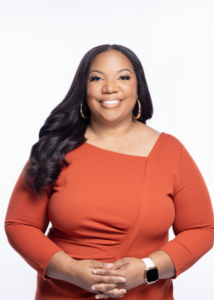 Allen
Allen
What advice would you give to young girls and young women, trying to find their places church girls?
Dr. Lyons
I would just say, one of the main ways you just grow as a Christian is you have to grow in biblical community. Meaning [no] isolating yourself. This mantra of “it’s just me and God,” that is a lie from the pit of hell. God doesn’t even exist in isolation. God, the Father, the Son and the Holy Spirit exist in community three persons in one. I think that is one of the ways we protect ourselves from the attacks of the enemy, from false teaching, from all the things that help us drift from the faith is to be in strong biblical community with other brothers and sisters who are like minded. And we also need discipleship. Discipleship is not just finding one super saint to lock arms with, go to Starbucks and get coffee, and do fun things. That can be sometimes a part of it, but really, we need to see every aspect of the church as a means of discipleship. You showing up on Sunday and listening to the preached word, you’re being discipled, you going to women’s ministry or men’s ministry or singles or marriage ministry, you serving in the local church. Those are all contexts where you can receive discipleship. I also think really got to put our hand to the plow. And because in the context of serving the local church, not just being a consumer is when you get to be around other people you get to learn the ways of Christ. You get to give up yourself and give yourself over to the work of the Kingdom. And that’s how you grow.
I would say, not even to say this last because this is definitely like last but definitely not least, prioritize becoming a biblical scholar. And I want to say biblical scholar and theologian, not just like I read my Bible, I did my devo time, but get in the book get in the text. If you’re using devotionals use them as supplements, use them as vitamins. Vitamins are good but they’re not food to live off. Prioritize eating that book, eating that word. Research has shown, even if it was just four days a week. If a person reads the Word of God, four days a week, their life would drastically change. I tell people read something every day, because there are things we do every day like brush our teeth. We wake up, we care for our bodies, we do things every day because it just has become a natural pattern. Eating God’s Word has to become a natural pattern. You grow by the Word of God. If you get into the Book, it will drastically change your life. When God delivered me from African spiritualism and all the ways in which I drifted from the faith and into tarot cards and kyrie shells and astrology and you know just all the altar building and ancestor worship, I had a Bible that looks spanking brand new that I found where God confronted me and convicted me of my idolatry. And all I did every single day, whether I understood it or not, is I read that Book. And I still have that Book, and it is tattered and worn and half of Romans is missing. And the pages are all crinkled up, because it was in the Word of God that God strengthened me and changed my mind and changed my desires. It is getting in the Word of God every single day that will literally revolutionize your life. I would also just say, hey, being a church girl is about being unapologetic. Like you can’t be afraid of cancel culture. You can’t be out here trying to fit in with the world and be on brand as a Christian. We [must] be willing to be soldiers. There are people in other countries who are literally dying for the faith. Surely you can handle not being liked or somebody thinking you a Jesus freak. If being a Jesus freak is the worst thing you could ever be called in this life, I mean, you have surely picked up a jewel to go in your crown. We have to we have to interrogate our lives and say, God saved me from the world. But the intention was to send me back into the world and be a light and be a disciple and be an ambassador. Be a living epistle being read by man because God is making his appeal to the lost world through us. Sometimes you’re the only version of God or church that a lost person will ever met meet on their way to being a believer. And so, if we’re a living epistle, you want to look at your life and say girl, am I telling the story correctly? When people look at me, when they observe my speech, when they observe my walk, when they observe where I go, and what I do, and what I share on my social media and what I even like on social media, because I’ve been tripped out by some of the Christians liking some wild stuff, do I look like I’m a serious Christian? Do I look like I’m a serious Christian? And if not, what are the things that God says you got to die to in order to walk in obedience to [Him]? Like you just can’t live in your kind of way and call yourself a Christian. We shouldn’t just live your kind of way and just call ourselves sliding into heaven. Stealing home base ain’t the way to go. It’s not the way to go. I want to I want us to get our weight up biblically, but I’m challenging us like stop playing church. Stop being on the sidelines stop just attending on Sunday and living wild and reckless and sleeping around and smoking blunts and you ain’t got glaucoma and talking crazy and sharing dumb silly memes and laughing at the church, laughing at all kinds of foolishness. Because what you laugh at you normalize. Check the music you listen to, what are you feeding yourself? Because here’s the thing, whatever you feed will grow and whatever you starve will die. How are you feeding your flesh? And how are you starving your spirit? The goal isn’t to starve the spirit; make it weak make it impotent. [It’s] to nourish and feed the spirit man so that that can be the giant. [Then] the flesh can be the little person, but we are functioning opposite of that. I see too many of my sisters just out here, really wanting to figure out how to be a carnal Christian. And that’s corny. Being a carnal Christian is corny. We need to stop it. Be unapologetic, be bold, be courageous the Bible says the righteous are bold as a line. God wants to use you sis. And the enemy is sitting back laughing at us as he eats up our lives with us looking like we serve him and not serve God. It’s time to come up and that’s what Church Girl is doing. Get this gospel vision for your identity for your purpose, for your healing, for your rest, for your ability to live unapologetic in Babylon, so you can flourish and stop drifting away from the faith. Or my last chapter, go after the gone girl, the missing black woman from the church and help guide her home like God guided me home when I was the prodigal daughter out in the world. The book isn’t meant to beat up on you, but it is a clarion call that says where’s the remnant? Where’s the remnant? Stand up! Stand up to the glory of God.

